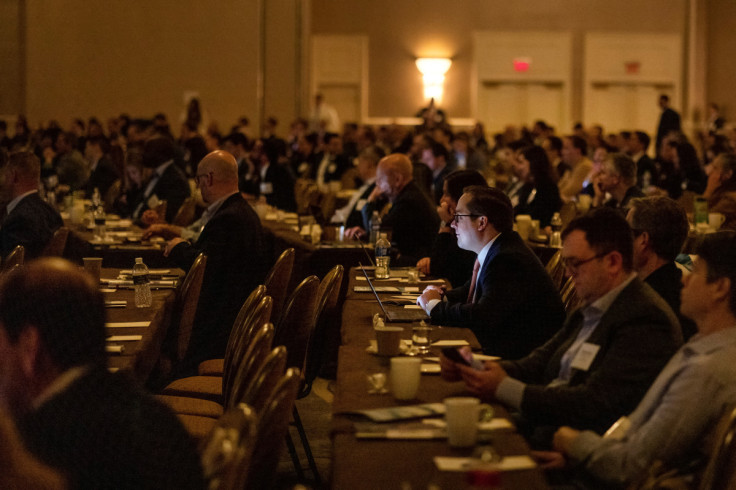Dealmakers Expect Pick-up In Activity Despite 'Brick Wall' Facing M&A

Some of the most prominent rainmakers in the world of corporate mergers struck a note of optimism about dealmaking on Thursday, even as they acknowledged a volatile economic backdrop had significantly impacted M&A activity.
The banking crisis that has emerged in the wake of Silicon Valley Bank's failure has shaken boardroom confidence already dented by fears over an economic slowdown, investment bankers and deal lawyers told the Tulane Corporate Law Institute conference in New Orleans.
"There is a brick wall in front of M&A activity," said Anu Aiyengar, global head of M&A at JPMorgan Chase & Co.
"When you look at what's happening in China, geopolitical tensions, interests rates, bank runs, liquidity crisis, increased chances of recession - throw everything together and it seems quite formidable."
With financing having dried up for private equity-backed leveraged buyouts, buyers will have no option but to put up a lot of equity to get deals done in the near term, the conference participants said.
"We are in for choppiness," said Scott Barshay, chair of the corporate department at law firm Paul, Weiss, Rifkind, Wharton & Garrison LLP. "There is a giant struggle right now. And it's a giant struggle because there's a lot of dry powder for the equity part of private equity deals. What there's not is a lot of leverage for the leverage part of the leveraged buyout."
M&A volumes declined considerably last year amid fears of faster interest rate hikes, possible recession, weaker credit markets and a tumbling stock market.
The total value of deals last year fell 37% from a record high in 2021 to $3.61 trillion, according to Refinitiv data. That is the biggest year-over-year percentage drop since 2001 when the U.S. economy fell into recession.
Global dealmaking this year through mid-March has tumbled nearly 50% in terms of dollar volumes from a year ago and is off nearly 30% in terms of the number of deals being done, according to Refinitiv.
Dealmakers, however, said they expect the impact from the banking crisis on broader M&A activity to be contained, as most of the worst affected regional banks are not major advisers or lenders on deals.
The technology sector remains the best hunting ground for corporate acquirers or private equity financiers, deal advisors said.
"There is really no part of the world that allows you to have an organic growth trajectory that lets you meet the market possible for trading at a premium valuation, which means you have to look at inorganic growth opportunities," said Aiyengar.
Dealmakers also predicted an increase in unsolicited approaches from cash-flush buyers who are taking advantage of a drop in valuations of potential targets, who are now more willing to entertain bids than they were a few months ago.
Increased regulatory uncertainty due to greater scrutiny on deals from antitrust regulators also is likely to impede the speed of deals getting across the finish line, with dealmakers criticizing the adversarial stance taken by the Federal Trade Commission and the Department of Justice.
"In this very narrow context of who's going to be running the DOJ antitrust division and the FTC in the future, our business will be a lot better if it's somebody else," said Barshay.
© Copyright Thomson Reuters 2024. All rights reserved.





















